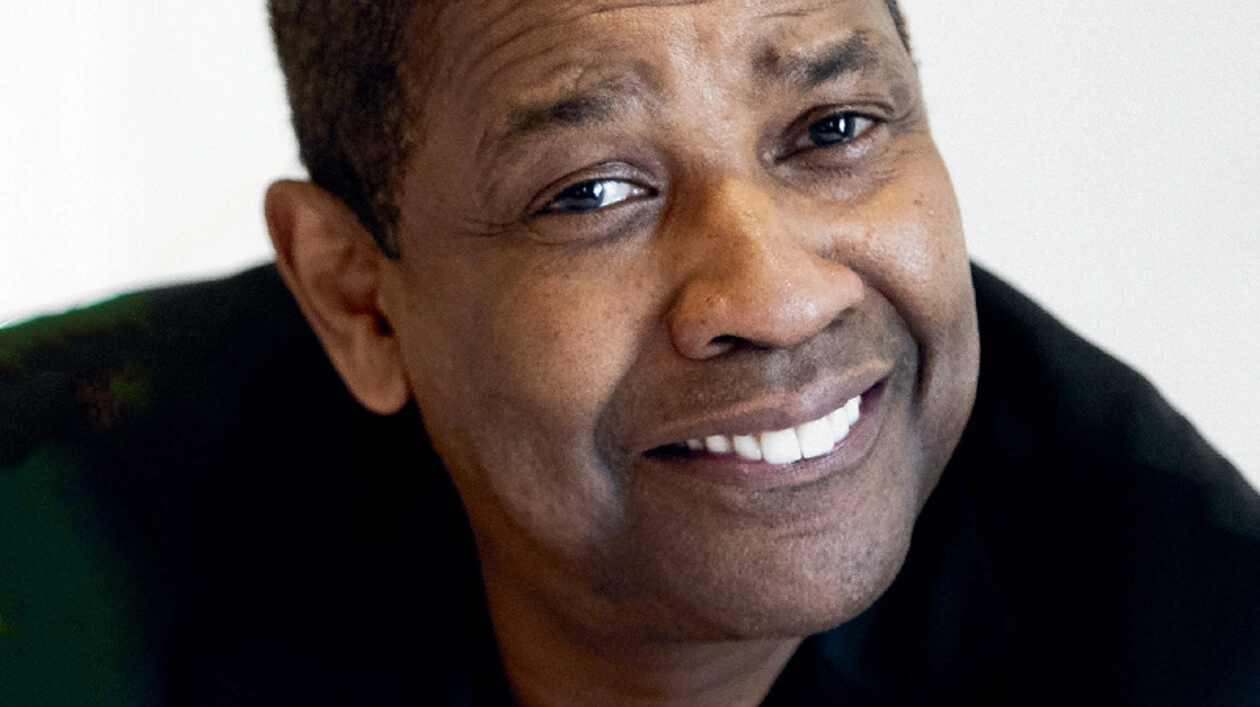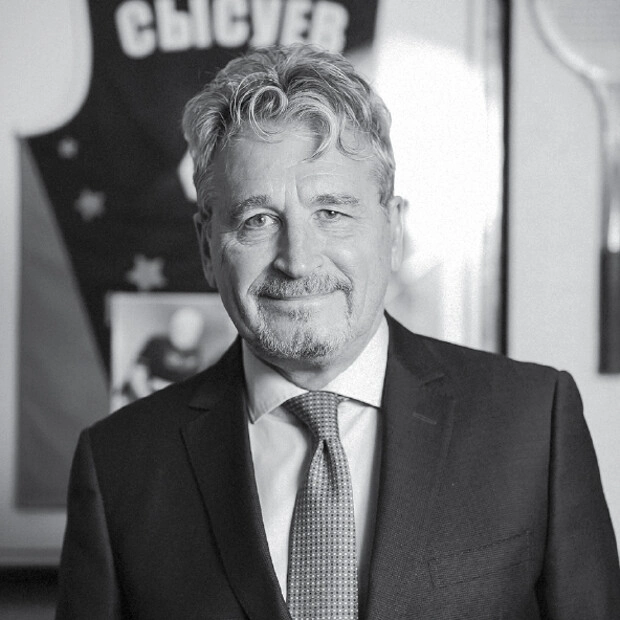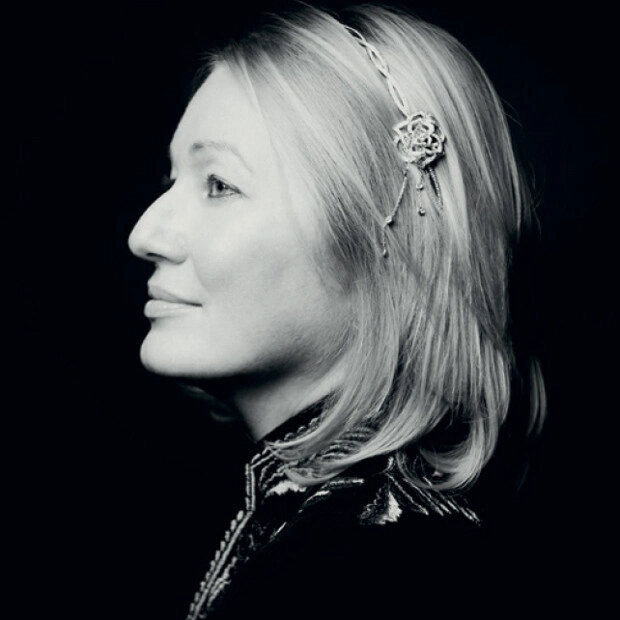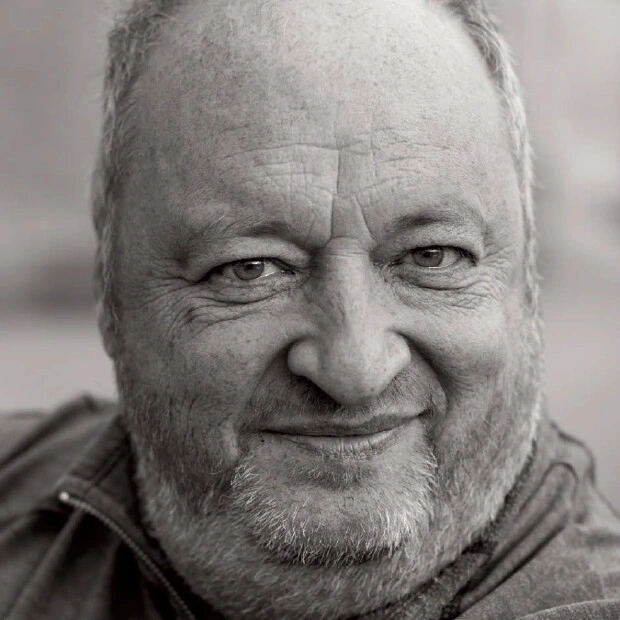interview — Nellee Holmes
Number One on the list of The 25 Greatest Actors of the 21st Century, whose name is known to the whole world, appears to care nothing for his greatness whatsoever. He dissects life, directing, films, and roles in the ordinary manner of the detectives investigating crimes in The First 48, his favourite documentary TV series. He believes in his God-given mission to be a mentor and knows for sure we should look for solutions inside ourselves rather than on the outside. That’s what Denzel Washington talks about in an interview with Nellee Holmes, our Hollywood correspondent and a voter of the Golden Globe Awards.
Nellee Holmes. In the last week of November, The New Your Times published an article about the 25 greatest actors of the 21st century. You were listed Number One and Isabelle Huppert was rated Number Two. They mentioned on your authority that you can do Shakespeare, action films, and whatever else. When you look at yourself and your career mirrored in such articles, how do you feel? Do you feel you have done everything you could, or that you still have to do something? How do you see yourself?
Denzel Washington. I see myself as a human being who is trying to help. I see myself as part of the solution and hopefully not part of the problem. I see more and more opportunities to utilize my God-given abilities to make this a better world in any small way. I can, even if it's just through my work, take people's minds off of their troubles for a while. My mother told me years ago, ‘Man gets the award. God gives the reward’. I've already been given every award one can be given. I learned that happiness does not come from that. I appreciate The New York Times and whoever else that make lists, but that's really not what I'm here for. Mine is more of a God-given mission, and that's to utilize my abilities to the best of my ability and to take advantage of any and every opportunity to be about God's business, as well as to share what I know and what I've experienced, both good and bad. And to be a mentor, if you will, as it relates to me professionally, for the generation that's coming up behind me. And every now and then, talk to young filmmakers like Ryan Coogler and even the late great Chad Boseman. Just take what I have and do the best I can with it.
N.H. I think I know who you’re rooting for. It stands to reason, my congratulations on the new film, Denzel. During your career, you’ve been placed in various scenarios and circumstances, in which, I hope, you did have some fun. On the other hand, wasn’t there something surreal about your talking to a cadaver in the morgue, even though it was all pretence?
D.W. For me personally, no, there wasn't. I mean, it's who he is because it wasn't me sitting there. It's who the character is. It's how he thinks and works. It was different because it was a real lady, and she did a great job. She didn't blink. She didn't move. There was only a pang of weird guilt about looking at what you shouldn't look at and things like that. So, I think it's who he is at that point.
N.H. So, you can separate yourself from your character?
D.W. What do you mean? So, you could ...
N.H. So, you’re not Denzel at all at moments like this one. You’re totally …
D.W. I hope not. No, no, I wasn't thinking about that at all. I wasn't thinking about myself at all, no.
N.H. The internal struggles of your character are of great interest. Could you talk a bit about conscience and how your character resolves the problem of feeling remorse? And what is your way of keeping your conscience clear?
D.W. I don't think he has resolved it. I think that's a journey he's going through. For me, not just now but especially now, in this world we're in, you know, if you don't have some spiritual anchor, you will drift any way the wind blows. These are difficult and challenging times, and we have to ask ourselves what we believe or believe in. I think my character looks outside himself for solutions when the answer is inside. There's a saying: ‘The enemy is the inner me’, and I think that's his case and the case for a lot of us right now.
N.H. Are your internal struggles of the same kind?
D.W. Yes, I mean potentially. You know, we're the only animal on this planet blessed with free will, and we live in a time when it's like free will on steroids. We're free to think, do, and go in any direction we want. However, in this information age, we have to protect our ears, eyes, hearts, and minds. We have to be very careful of the information we take in and rely on as the truth. We have to look inside, not outside. The answer for any of us, for me - I'll speak for myself - is not outside me. It's inside me. We need spiritual calisthenics.
N.H. The music in this film is very eclectic. I wonder what kind of music played in your mind at the silent moments your character goes through, which are many.
D.W. You mean while I was playing the part? Well, in this case, the script gave me clues, you know. He likes the oldies, so I was listening to a lot of those, even sharing some ideas with John Lee Hancock. Yeah, I think he was stuck, you know, and the music reflects that. Not just stuck in the 50s or 60s but stuck. He needed a kind of healing, if you will, and was looking for it outside himself in music, in his work, and his desire to solve crimes.
N.H. What’s the view from your sofa? What are the TV shows, dramas, comedies, or whatever that you watch? Could you talk about TV?
D.W. I built my man’s cave. Now, I have my super sound system, my Macintosh gear, and my giant flat screen. Everything's right there where I can touch it. What was the question? What? What? What?
N.H. What TV shows do you watch? What dramas have touched your feelings?
D.W. I watch documentaries. I've gotten hooked on Netflix documentary stuff. The other day, I was watching Kim Jung’s documentary about a grandfather and a father. I don't watch TV shows, series, or anything like that.
N.H. You watch the news, though, right?
D.W. There isn't much news on television. There’s a lot of opinions but not a lot of news.
N.H. Are you filming anything now? If so, what about the safety measures?
D.W. I'm directing a film called A Journal for Jordan. We filmed it before the holiday for two weeks up at Fort Irwin in the Californian desert. We're now in New York prepping. We start shooting here in about four weeks or so. We're going through everything we need to go through to ensure testing everyone. I'm tested five days a week minimum. I don't know if that's a SAG rule now. We were shooting The Tragedy of Macbeth when we shut down. Then, when we came back about three months into the pandemic, we had to test five days a week, so, you know, I've gotten, kind of, used to that. It's the world we live in right now.
N.H. I would be remiss in my duties if I didn’t ask you something. Now, you and your family are becoming a sort of Hollywood royalty. Your son’s work in Malcolm & Marie and Tenet is amazing. I wonder how you feel about it. How instinctive is he? Do you feel happy knowing he is such a …
D.W. Well, his sister, my daughter Katia, produced the film. I don't know if he was actually hired by her, though. My other daughter Olivia is a brilliant actress. Just remember I said so: Olivia Washington is a great actress. She just co-starred with - I always mess up his name - David Oyewelo. How do you say it? Oyewelo? You mess it up too. OK. So, all our children are in the business. My younger son's a director. His older sister's a producer. His twin sister's an actress, and his oldest brother is John David Washington.
N.H. What a family!
D.W. My wife's done a great job. Great job.
N.H. Now that your whole family is involved in the business, what’s your opinion of the cinema’s future? What, do you think, will change? Or nothing will?
D.W. Well, I'm more concerned about the future of humanity. The cinema’s future we'll see, you know. The Bible says over and over: ‘This too shall pass’. They're already starting to come up with solutions, vaccinations, and things like that. I have a feeling it'll come back stronger than ever because it's in our nature to want to be a community, to unite, to have shared experiences. I think we are already hungry for that. When the time is right and safe, it will come back even more powerful than it used to be.
N.H. Have you ever felt as if you were stuck in time? You have a wonderful family and a great career, but there must have been moments when you felt constricted and confined. How do you get out of that? What’s your tenacious way of breaking through such feelings?
D.W. In times like that, you know. A lot of us are living in a time where we feel stuck, trapped, or vulnerable. That's a part of being a human being, and we just have to find a way to work through those times.
N.H. Are there any tricks you’ve learnt or skills you’ve acquired over the years?
D.W. I think, like this character in The Little Things, we try to use tricks and our work. I'm happy about my work, but I don't rely on it for my happiness. My strength doesn't come from the accolades or the work. There's a joy in it because it's utilizing my God-given talents, but it’s not my emotional, psychological, or spiritual currency.
N.H. How did you celebrate last Christmas?
D.W. At home with my family, which is how we start every Christmas anyway. Yeah, this year, everybody will obviously stay closer to home. The last few years, we would go to the Bahamas to spend a week with our friend, Lenny Kravitz, but we'll be staying home this year.
N.H. Do you like giving or receiving Christmas gifts? Is there anything you’d like to get for the coming Christmas?
D.W. Health and healing for our nation. Peace for our world. A large dose of love, kindness, and some steadfastness. That's what I pray for. That's what I hope for. That's what I want.
N.H. You’re married to an African-American singer. Could you talk a bit about her?
D.W. My wife is more of an actor right now. She just finished a series, a story about Aretha Franklin. So, she's been doing more acting than singing lately, but she's a professional like I am, and we've been at it together for a long time.
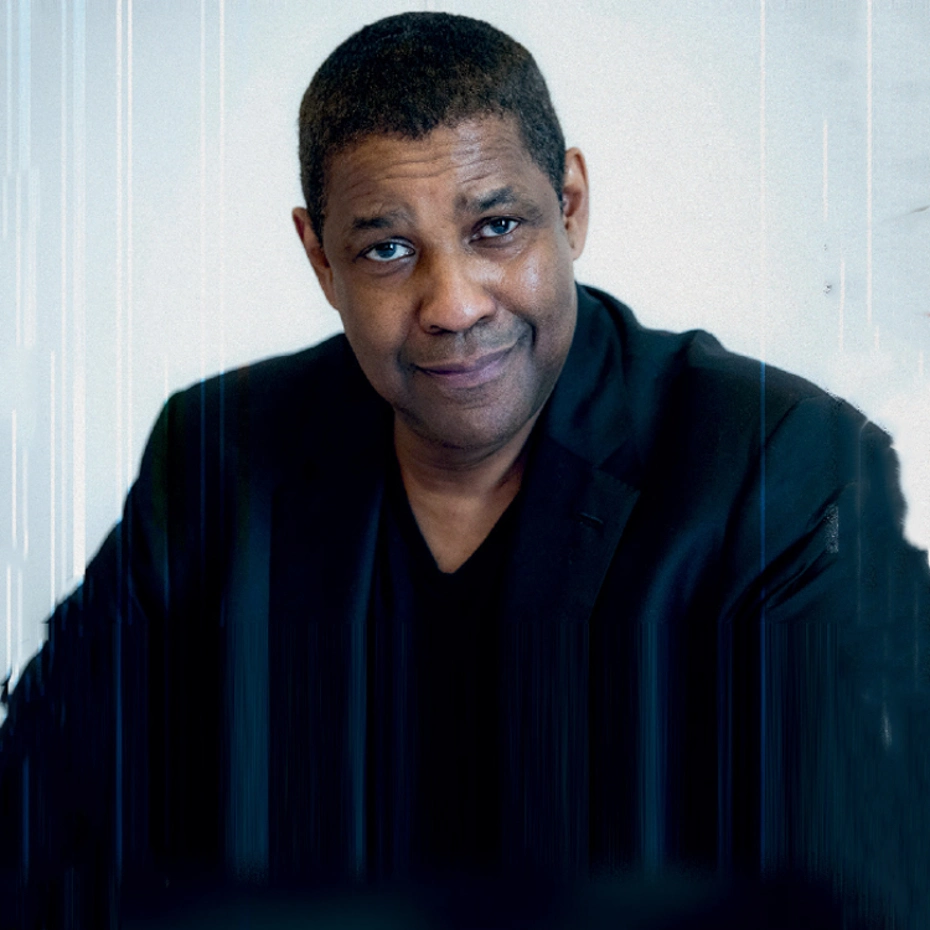
N.H. What keeps you up at night? How do you get out of a funk? When did you have your last big belly laugh?
D.W. What keeps me up at night? Nothing. I sleep like a baby, and nothing keeps me up at night. I'm alive, so I have good laughs all the time. You got any good jokes?
N.H. I can’t recall any right now. How do you get out of a funk?
D.W. I try not to get into one. Being aware you're in one, I guess, is half the battle. You realize you're in a funk. And get out of the house. Get up and do something. Work out.
N.H. I spoke to Rami Malek. He said he’d met you at the Golden Globe Ceremony and came over to say hi. What was that first meeting like from your perspective? What did you think of him then, without seeing much of his work? D.W. To be honest with you, I don't even remember. I only remember our saying hi, but, you know, on such occasions, everybody is running around saying hi.
N.H. What did you think of him at the time? How much of his work had you seen?
D.W. I hadn't seen any of his work other than Bohemian Rhapsody. That's the only thing I had seen. But he's great. Both Jared and Rami are great young actors. So, it was a real joy. My favorite part of the film was sitting in that interrogation room behind the glass and watching the two of them, those young lions, go at it take after take. I needed some popcorn just to watch them go at it. They're both, I must say, on top of their game. It was inspiring to see how dedicated they were to their craft and the way they were going about their business. It inspired me to go home and be sharp and better. Be better and be ready.
N.H. Could you talk a little about your attitude to the psychological film genre? Also, what is your impression of working with John Lee Hancock?
D.W. I love him. He's a great collaborator. He's a humble man. He's a very good man. And, obviously, he’s a very talented writer and director.
N.H. What about psychological films?
D.W. I don't really look at the genre, you know. I read a script and never think of it from the outside in terms of the genre and suchlike. I just... Is it a good read? Which this was. I mean, it was a real page-turner. It was interesting and exciting because it was like, ‘Oh, well, it's not what you think. Wait a minute. Who is the bad guy here?’ So, it was a different kind of … Well, I don't even want to use the word ‘thriller’. People will want to put it in a box, but I think it's bigger than that. I don't think there is a box for this one. That's what's good about it.
N.H. What film can you watch over and over again? What book can you read over and over again? What piece of music or band can you listen to over and over again?
D.W. There's a lot of music I can listen to. I was actually listening to a cut by George Clinton we used in Roman J. Israel, Esq., which I turned on for Dan Gilroy. There is a group called Funkadelic, and they did a song called Cosmic Slop. I've had that album for 50 years and still love it like it was yesterday. One of the joys of my life’s been to spend a day with George Clinton’s crazy self. There are very few movies I can watch over and over again. The Godfather is one of them. I tend to watch movies more when I'm directing. I'm not a movie buff, to be honest with you. I don't look at a whole lot of movies. I study and, occasionally, enjoy them. I look forward to the time when I can sneak in the back of a theater - somewhere in North Hollywood - again.
N.H. Have you ever got to the point of making a decision that would have a life-long effect? Like in the movie, when your character decides to help the guy, vague as the situation might be, even though he might not be a villain. Have you ever decided to take a road less travelled?
D.W. Yes, in my spiritual journey, I had to grow and come to a place where I no longer cared what people thought about what I said about my spiritual journey. For a time, I was more concerned about who I might offend, whether or not they believed me, or if I said something, I might lose somebody, say, some fans. You see what I'm trying to say? Now, I’m unafraid and don't care. Whatever the consequences, I'll live with them the rest of my life. Because the rest of my life, professionally, is dedicated to producing August Wilson's plays. And, as far as my beautiful family is concerned, to watching my children doing amazing things in their own right. As my wife is as well. But, in terms of my spiritual journey, I just want to get closer and closer to God and take that walk with Him. That's my mission for the rest of my life.
N.H. What are your favourite films of the genre? What kinds of films guide you as a director?
D.W. Well, I'm in the middle of directing a picture right now, and I've been re-watching The Godfather and stealing shots from it. In terms of thrillers, or I don't even know what genre you could call them, I’ve been watching Seven and re-watching The Silence of the Lambs. I am like, 'Man! What a movie!' And again, I can’t help stealing shots. There’s one where Jodi is talking to Anthony Hopkins through a glass, I guess. And Jonathan had Anthony's face reflected in the glass, in a close-up shot of her. I'd like to steal that as my homage to Jonathan Demme. Years ago, when I was real nervous about trying to learn how to make movies, Steven Spielberg, a pretty good director, told me one thing. He said, ‘Steal. Everybody steals, Denzel. But steal from the best.’ So, I'll be stealing from Mr. Spielberg as well.
N.H. I want to ask you about detective skills that actors are called upon to have. I imagine, as a father, you probably had to use this skill set to ascertain information if your children were reluctant to tell you something. Do you think you could’ve become a good detective officer?
D.W. I don't know if that's my strength. I think of myself more as an investigative reporter. I do the research and circle the subject. I remember sitting down with Bob Woodward while working on The Pelican Brief. He talked about how he would circle the subject for a year or two and then finally sit down and write the story that he was gonna write. So, I, sort of, do the same. I circle a script and a character. The difference is that I interpret the role as opposed to writing a story.
N.H. Have you ever talked to detective officers or gone on ride-alongs?
D.W. I watched a ton of The First 48. That’s my favorite show and guilty pleasure. I watched it over and over just to see the detectives’ day-to-day behavior. There’s nothing copish or detectivish about them. They talk about somebody who got their head chopped off while eating turkey sandwiches because they have seven, eight, ten, or many more cases to work on. They are so meticulous, and this is their normal behavior, which is really worth appreciating.
N.H. You’re going against your son for the awards.
D.W. Well, I don't know if you've noticed, but my daughter is in The Little Things. And let me say it again. Just remember that I said so: Olivia Washington is a great young actress.
N.H. What was her part?
D.W. Ah, I see. She was so good you didn't even realize she was there. In the scene where I come into the evidence room or something like that, she tells me to get in line and wait, like everybody else.
